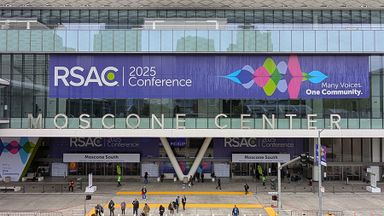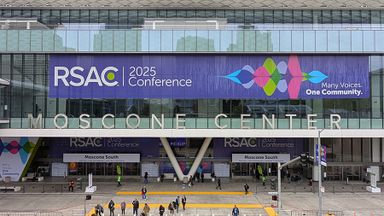RSAC 2025 Preview: Cybersecurity’s Evolving Landscape
The RSAC 2025 conference promises to be a pivotal event in the cybersecurity world, with a packed agenda that reflects the industry’s most pressing concerns. The theme “Many Voices. One Community” brings together diverse experts from various fields to address the growing challenges in cybersecurity.
Agentic AI: The Future of Cybersecurity
A significant focus at RSAC 2025 will be on “agentic AI” – autonomous systems capable of making security decisions without constant human oversight. According to Sunil Yu, CTO and co-founder of Knostic, this shift represents a major evolution in cybersecurity, moving beyond AI-enhanced tools to fully autonomous decision-making systems. Yu frames this development through the OODA Loop model (Observe, Orient, Decide, Act), explaining that AI is now capable of performing tasks once reserved for human analysts, including data interpretation and security decision-making.

The emergence of agentic AI raises critical questions about decision-making authority and governance. As Yu notes, “The critical question for us at RSAC this year is about decision-making — are we ready to trust AI to autonomously make security decisions?” The conference will feature various sessions and panels discussing how to build trust in these autonomous systems, define ethical boundaries, and create governance models to keep pace with innovation.
Identity: The New Frontier in Cybersecurity
Another major theme at RSAC 2025 is the growing importance of identity and access management (IAM). With the increasing number of machine identities driven by AI, organizations face significant challenges in verifying and managing both human and non-human identities. Dave Mahdi, CIO at Transmit Security, emphasizes that “Identity is no longer just a security concern — it’s a frontline target and critical business priority.”
New products launching at the conference, such as LastPass’s “Secure Access Experiences” and CryptoLab’s “Encrypted Facial Recognition,” aim to address these challenges. The industry is moving towards more sophisticated identity management solutions, including homomorphic encryption to defend against quantum threats.
Navigating Regulatory Challenges
The conference will also tackle the complex issue of government regulations and their impact on cybersecurity. The current political landscape in the U.S., including the Trump administration’s disruption to cybersecurity efforts, will be a significant topic of discussion. Former officials like Chris Krebs and Jen Easterly are expected to share their insights, contrasting with the current administration’s approach.
Regulatory debates will center on balancing innovation with oversight in an AI-driven world. Sessions will discuss federal efforts, such as Biden’s Executive Order 14110 and the EU AI Act, which aim to integrate cybersecurity into AI development and testing. The industry is divided between those advocating for stricter regulation and those pushing for self-regulation through cross-industry standards like the NIST AI Risk Management Framework.
Preparing for Quantum Risks
Despite practical quantum computing still being years away, RSAC 2025 emphasizes the need for immediate preparation. Sessions on “Crypto-Agility” and “Post-Quantum Cryptography” highlight the urgency of building flexible cryptographic systems that can adapt to future quantum threats. Experts stress that quantum security planning is no longer optional but a new baseline for long-term cyber resilience.
Keynote Highlights
The conference boasts an impressive lineup of keynote speakers, including Craig Newmark, Jade Leung, Alexei Bulazel, George Kurtz, and Bruce Schneier. The event will also feature voices from outside the tech industry, such as Earvin “Magic” Johnson, Jamie Foxx, and Ron Howard, bringing broader human perspectives to the discussion.
As RSAC 2025 unfolds, it becomes clear that while cybersecurity terminology may be complex, the stakes have never been more evident. The conference represents a crucial moment for the industry to come together and address the multifaceted challenges of the evolving cyber landscape.


